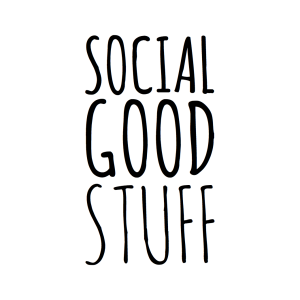Over the last few years, as we have researched and developed the Greatest Good platform, we have had many conversations with people about the United Nations Sustainable Development Goals (UN SDGs, or just SDGs for short). With a few exceptions, people roughly fall into two categories: those that have never heard of them; and those that say they are aligned with one or more of them.
So, what are the UN SDGs? They are the goals that all Member States of the United Nations adopted in 2015 as part of a 15-year plan (Australia has been a founding member since 1945). The goals are predominantly aimed at the actions that governments should take in all developed and underdeveloped countries. They are an urgent call to action to achieve the 2030 Agenda for Sustainable Development. This 15-year plan was created with the aim of ending poverty, protecting the planet, improving prosperity for all people, fostering peace, just and inclusive societies. Most importantly, it was created for partnerships between all countries, stakeholders and people with a focus on the poorest and most vulnerable people and countries. Right now, we are around halfway into the 15-year plan, and there is still a lot to do to achieve all of the goals.
Many people will be familiar with the 17 UN SDGs. What they may not realise is that there are 169 underlying target areas developed to create a clear roadmap for a better future. Many of these target areas are aimed at government action and don’t easily translate into what individuals or organisations can do.
We’ve found that many people and organisations who say they are aligned with a particular goal(s) are unable to articulate the underlying target areas they are acting on towards these goals. In most cases, they are unaware that there are target areas/sub goals.
Consumers can search by their values to find for–purpose organisations on the Greatest Good platform. The UN SDGs are one way they can do this. However, we want to avoid any sort of impact washing (green, brown, blue, you choose the colour…). So, we do our due diligence and verify that the for-purpose organisations who have selected the UN SDGs in their application are actually acting on one, or more, of the underlying target areas and can show us how they are doing this, and how they are measuring and monitoring the results.
It’s not an easy conversation to have, especially when there are so many social enterprises, charities/NFPs and B Corps genuinely trying to do the right thing by creating positive change based on the wording of the top 17 goals. They are making great impacts in what they are doing, but not directly towards the UN SDGs. We’ll be running a range of educational events to help people improve their understanding. It’s a small step in getting closer to actually making meaningful progress towards achieving the 2030 Agenda for Sustainable Development.
The Greatest Good platform has been co-designed with the generous support of a range of consumers, for-purpose organisations and service providers in the for-purpose sector. Their input, feedback, comments and suggestions helped to guide the platform functionality. We’d love to hear your feedback on this article and what training, education and support you need to help your organisation on its UN SGD journey.

